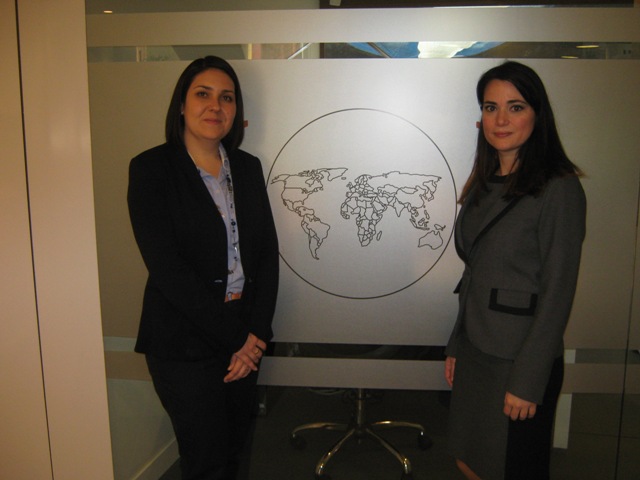Caxton College student at Imperial College
Caxton College student at Imperial College: ‘I can’t see a great deal of difference between Maths and Literature’
Nicolás Barykin has been accepted to this prestigious English university to study Mathematics.
Only a chosen few join this prestigious British university located in Victorian London: a powerful academic enclave where great names of world history have studied and lectured, such as Alexander Fleming, who discovered penicillin, the philosopher Henry Huxley or the science fiction writer H.G. Wells.
Nicolás Barykin, a Spaniard of Ukrainian origin, has just begun his first year of study at this international campus where students from 125 nationalities come together every day. ‘My first week was full of both social and academic events. I met people from nearly every country in the world: from Mexico to Singapore (and other Spaniards, of course). In fact, most of the students in my degree programme aren’t even from the United Kingdom’, Barykin declares with astonishment.
To be able to gain a place in the illustrious Faculty of Mathematics, this former student at Caxton College successfully completed a very demanding admissions process. ‘Initially I submitted an essay in which I had to demonstrate my interest for mathematics, and then I had to sit a very high level exam on the subject matter. After evaluation of both of these assessments, I was told that I would be able to gain a place at the university with a grade of 13.77 (out of a maximum of 14 points) in my final Sixth Form grades. It was hard, but I did it’, smiles Barykin.
Although he is a devotee of mathematics, this young Valencian feels a deep vocation for the liberal arts. In fact, one of the subjects that he chose to study at A Level was English Literature. Although this may seem surprising, Barykin believes that it isn’t so strange. ‘A priori, we might perceive a lot of differences, but really there aren’t so many, because both disciplines have a social aim. Mathematics are logical, objective, abstract, rational and aren’t questionable. Literature is exactly the opposite: emotional, subjective, and requiring an opinion. While literature explores the limitations, existence and meaning of the human condition, mathematics try to find absolute solutions to questions that no one has ever asked before. But the aim of both disciplines is similar: to try to help society feel better’.
Among his favourite works of literature is Death of a Salesman by Arthur Miller, and he’s now enjoying reading The Picture of Dorian Gray by Oscar Wilde. ‘But I also spend time on mathematics, because they are my true passion’, Barykin clarifies.
Mathematics also help to develop logic, so this 17-year-old, who is very grateful for everything his old school has done for him, also has an interest in the field of philosophy. For this reason, and although he doesn’t know yet what professional career he wishes to pursue after completing his mathematics degree, he believes he will use maths ‘in a very practical way in order to help humankind’.






Recent Comments